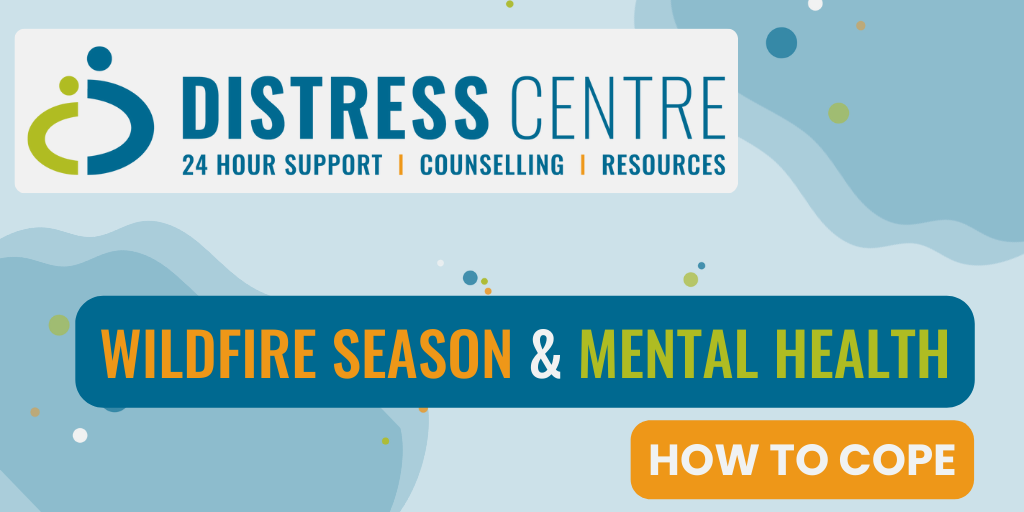Wildfire season is in full force here in Western Canada and is impacting the lives of countless Canadians.
For those who have been displaced by wildfires, you are likely focused on your survival and immediate needs. Visit the website of your local municipality or contact 211 to learn about resources for evacuees.
To support Albertans affected by wildfires, 211 Alberta maintains this list of important resources. It includes key contact numbers and links to detailed, up-to-date information. You can also contact 211 by phone, chat or text to speak with a live person about the support you need and be connected to resources.
Learn more by visiting 211 Alberta’s website.
In Calgary, we are supporting evacuees from Jasper through our 211 service, by connecting them to reception centres, resources for evacuees, and counselling supports. Distress Centre is also a member of the Emergency Wellness Response Team, providing emotional support at reception centres.
If you have not yet been displaced by wildfires, that doesn’t mean you aren’t impacted. The fear of what may come, grief for the suffering of others and loss of loved places, stress about climate change, and dealing with the effects of smoke are just some of the things that can lead to anxiety, depression and even thoughts of suicide.
Here are some suggestions to help you cope during wildfire season.
Feel your feelings
It’s natural to feel a range of emotions in times like these. Allow yourself to feel your fear, frustration, and sadness. Meeting with friends to vent and share your feelings can provide a much-needed outlet, and seeking professional help is often a good option. At Distress Centre, we offer 24-hour crisis support for both adults and teens, along with crisis counselling for those who need a little more help exploring their emotions in a safe space.
Distractions can be helpful, but it’s also important to acknowledge and process your emotions rather than suppressing them.
Distraction-based coping
Finding healthy distractions can be a useful way to manage stress. Engage in self-care activities and spend time with loved ones to take your mind off the situation. Consider taking a break from constant news updates and doomscrolling. It’s okay to limit how much information you take in. You can stay informed without scrolling through upsetting posts for hours. Choose one or two reliable sources to check a couple of times a day, unless the situation requires more frequent updates for your safety.
Focus on what you can do
Think about what you can do. So much is out of our control and if you’ve been displaced you need to simply survive, but if you’re safe at the moment you can:
- Help Others: Look for opportunities to support evacuees and those impacted by the fires through volunteering, donating, and sharing information. Whether someone is evacuated or not, we’re all being impacted by the effects of wildfires. Check in on your, friends, family and neighbours. Be kind to those around you.
- Prepare for Emergencies: Review your own safety and emergency plans to ensure you’re ready if you need to evacuate or deal with an emergency situation.
- Get Involved: Learn more about environmental issues and find ways to get involved if the cause resonates with you.
–
During these challenging times, it’s important to take care of your mental health and support those around you. By feeling your feelings, using distraction wisely, and focusing on actionable steps, you can navigate the stress of wildfires more effectively. Remember, 211 is here to help you and those impacted by the fires. You can also contact our 24-hour crisis lines if you need emotional support. We’ll get through this together.

